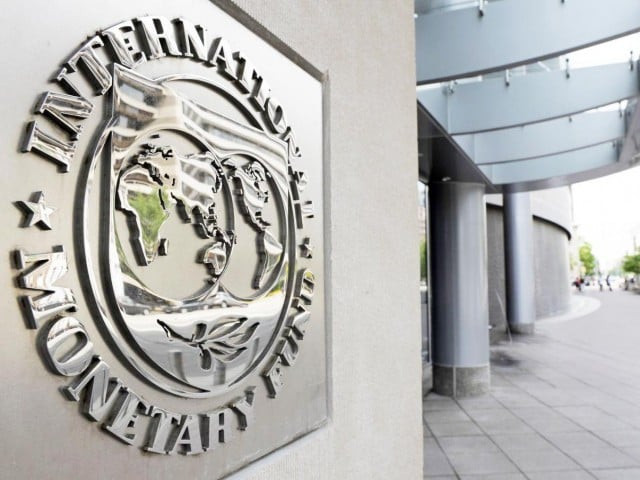IMF package: Softening stances raise hope of early bailout deal
Exchange rate adjustment and increase in electricity prices remain two sticking points

Exchange rate adjustment and increase in electricity prices remain two sticking points. PHOTO: FILE
Both the sides have softened their positions on the targets of budget deficit and increase in interest rates after talks collapsed on November 20, sources in the Ministry of Finance told The Express Tribune. Pakistan has conceded more ground than the IMF, they said.
The IMF has shared a programme design with the Finance Ministry, which raises hopes for an early agreement on the bailout programme. In the light of new positions taken by both the parties, the government is preparing a draft of Memorandum of Economic and Financial Policies (MEFP).
The MEFP could be dispatched to Washington next week, detailing the policies that the government of Prime Minister Imran Khan would implement under the IMF umbrella from 2019 to 2021.
The sources said Pakistan is willing to make further fiscal adjustments, primarily on account of Public Sector Development Programme (PSDP). The development spending may be slashed below Rs500 billion, around 30% less than the actual spending in the previous fiscal year.
The revised deficit target for fiscal year 2018-19 may be close to 4.5% of the Gross Domestic Product (GDP) in this fiscal year. The Federal Board of Revenue’s (FBR) target could be jacked up significantly.
As a result of fiscal and monetary adjustments, Pakistan expects that the economic growth rate would remain around 4% in this fiscal year and inflation could be restricted to 7%. However, the IMF sees economy slowing down to below 3.5%.
In case of staff-level agreement, the interest rates would be further increased in coming months as a prior action but these will be lower than what the IMF had demanded during the staff level talks.
While addressing the Pakistan Economic Forum on Thursday, Prime Minister Imran Khan said the talks with the IMF were under way. The Fitch rating agency reported on Thursday that the delay in the IMF bailout package is a temporary phenomenon and Pakistan would successfully achieve the bailout worth $8 billion during January-March 2019.
The State Bank of Pakistan (SBP) has increased the interest rates by 4.25% since January including 1.5% increase in the last monetary policy.
The present 10% interest rate was 50 basis points higher than the rate the SBP Governor Tariq Bajwa had anticipated for June 2019 during a presentation to the PM couple of months ago.
The sources said the IMF has not budged from its demand of introducing a totally free float exchange rate regime. Pakistan has rejected this condition and is ready to introduce a flexible exchange rate.
The central bank has already devalued the rupee by 32.7% since January. The SBP governor said on Thursday that the exchange rate at Rs139 to a dollar was ‘near the equilibrium’. Pakistan would not crack under the IMF pressure on certain conditions, said the Finance Ministry sources.
The Fitch rating agency expects the rupee to weaken further against the dollar over the coming quarters as the IMF would typically require the central bank to build up its foreign reserve buffers.
The government has managed to carve out space till June next year due to financial support committed by China and Saudi Arabia. However, it does not have a plan beyond June 2019. Pakistan on Friday received another $1 billion from Saudi Arabia out of $3 billion cash commitments.
Pakistan likely to pay back IMF before Chinese debt: US Treasury official
The government has already consumed $1 billion that Saudi Arabia disbursed last month and the reserves have again fallen to $7.2 billion, which was the level before the Riyadh disbursed the first tranche.
The sources said increase in electricity prices is another stumbling block in early finalisation of the programme. The IMF has termed it a non-negotiable condition.
Against the National Electric Power Regulatory Authority’s determination of Rs3.82 per unit increase, the government has approved only Rs1.27 per unit increase in tariffs. The IMF wants that the government should fully pass on the increase to the end consumers.
Slim chance of obtaining IMF bailout by Jan 15
The sources said timing of the implementation of the IMF conditions is another outstanding issue. Pakistan wants that majority of the tax measures should be come into effect from July 2019 so that the government may avoid public criticism on yet another mini budget.
The Finance Ministry wants to make the fiscal adjustment by slashing the PSDP, increasing non-tax revenues through Gas Infrastructure Development Cess and raising the sales tax rates on petroleum products to 17%.



















COMMENTS
Comments are moderated and generally will be posted if they are on-topic and not abusive.
For more information, please see our Comments FAQ